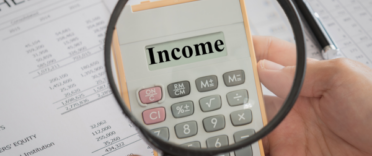 Income protection insurance pays a benefit to the policyholder if they become ill or injured and are unable to work as a result. In this article, I will explain the tax implications in terms of national insurance and income tax for personal income protection insurance policyholders who pay the premiums to insure their own income. As well as this, I will explain how the benefits from an income protection insurance policy are taxed where a business pays the premium, addressing whether it can be treated as a business expense to reduce corporation tax and whether it is subject to benefit in kind tax.
Income protection insurance pays a benefit to the policyholder if they become ill or injured and are unable to work as a result. In this article, I will explain the tax implications in terms of national insurance and income tax for personal income protection insurance policyholders who pay the premiums to insure their own income. As well as this, I will explain how the benefits from an income protection insurance policy are taxed where a business pays the premium, addressing whether it can be treated as a business expense to reduce corporation tax and whether it is subject to benefit in kind tax.
1 minute summary
- If you personally pay for your Income Protection insurance premiums then your Income Protection benefits will not be taxed, however, the maximum benefit is usually limited to around 65% of your gross earnings ensuring it doesn't pay more than your usual earnings
- Executive Income Protection policies and Income Protection policies that are part of a Group Scheme may be taxed
- If you are thinking about buying an Income Protection policy or want to know more about how Executive or Group Income Protection policies work, then complete this short form* to speak to an independent Income Protection specialist. They will recommend only what is right for you and you can receive up to £100 cashback when you take out a policy
Are income protection insurance benefits taxed?
Income protection insurance benefits are not taxed when you buy a personal income protection insurance policy that protects your income and you are the person who pays the premiums. However, income protection insurance benefits can be taxed when an employer or business pays for income protection insurance that covers an employee.
Below I go into more detail about the specific tax implications when it comes to the benefits paid from the different types of income protection insurance policies.
What is income protection insurance?
- Income protection insurance is a type of sick pay insurance that pays out a pre-agreed sum of money monthly if the insured person is unable to work due to an accident or illness
- Benefits from an income protection policy will normally continue until the insured person returns to work or retires but the payment period can also be capped if you choose a budget income protection insurance option.
- The maximum level of cover under an income protection policy is limited to around 60-70% of your gross monthly salary
- Setting up an income protection policy will require completion of a health questionnaire with premiums set accordingly
Up to £100 cashback on income protection insurance
Our partner LifeSearch will help you get the best and cheapest income protection.
- Search the market and all the leading insurers
- Free advice with no obligation to purchase
- Up to £100 cashback for new customers
Personal income protection policy
- This is an income protection policy that has been arranged by the insured person to protect their own income
- All premiums are paid by the insured person
How is personal income protection insurance taxed?
- Benefits paid under a personal income protection policy are paid totally free of income tax
- The amount of benefit that you can insure is usually no more than 65% of your gross income so it won't pay more than your normal taxed income
- The benefit amount is not subject to national insurance
Executive income protection policy
- Executive income protection policies are arranged by a company, usually for its senior personnel
- Premiums on this type of policy may be paid by the employer, employee or both
- If the income protection premiums are paid by the employer then benefits would be taxed as income
- If the income protection premiums were paid by your employer but you paid the tax on these premiums then any benefits would not be taxed as you would have effectively paid the premiums out of your taxed income
- If you paid all or part of the premiums on this type of income protection policy then tax will be levied, in the same proportion, on any benefits paid
- For example if you paid 50% of the monthly premium then you will be taxed on 50% of the benefits paid
- Benefit levels available are higher (up to 80% of your gross salary) which means the employee still receives close to what they earned after tax
Group employee income protection policy
- Group income protection schemes provide an income for employees registered within the scheme
- Employees with income protection through a group scheme are paid the benefit through the employer
- The insurance company pay the benefit to the employer and the employer pays this in their normal payroll
- The employer pays for the scheme which normally forms part of their benefits scheme for employees
- The benefit is taxed in the way that your income would be taxed
How to find the best income protection policy for you
I would always recommend that you speak to a firm specialising in income protection and life insurance. To receive free, impartial advice and a personal recommendation from one of the UK's leading income protection specialists, simply complete this short form*.
As a Money to the Masses reader you can receive up to £100 cashback when you buy your insurance.
I have personally vetted the services provided by this income protection specialist. Not only are they experts in their field but they will only recommend what is right for you, even if that is for you to not take out an income protection policy at all.
If a link has an * beside it this means that it is an affiliated link. If you go via the link, Money to the Masses may receive a small fee which helps keep Money to the Masses free to use. This link can be used if you do not wish to help Money to the Masses and do not wish to qualify for the cashback referred to in the article





